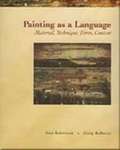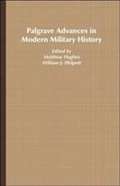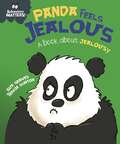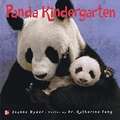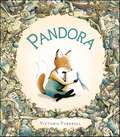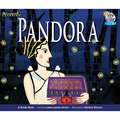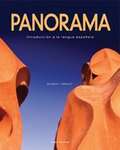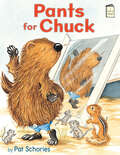- Table View
- List View
Painting as a Language: Material, Technique, Form, Content
by Jean Robertson Craig McdanielDesigned to address the issues of how to paint and what to paint, PAINTING AS A LANGUAGE covers a wide range of information of central importance to beginning and intermediate painting instruction. The authors emphasize the value of the student's cognitive understanding of the process and potential of painting in the student's overall progress in the studio. Blending journal writing with painting and drawing exercises, they guide the student through selecting meaningful subject matter as well as becoming adept at shaping and interpreting that material through the language of painting.
Painting the House (Fountas & Pinnell Classroom, Guided Reading Kindergarten)
by Mary LindeenNIMAC-sourced textbook
Painting the Wall (Fountas & Pinnell Classroom, Guided Reading Kindergarten)
by David Dean Jennifer CareyNIMAC-sourced textbook
Pajarito y el baño para aves (¡Arriba la Lectura!, Level C #57)
by Eve Browne Melissa WebbUn pajarito ve un baño para aves que cuelga de un árbol. Un pájaro grande también ve el baño para aves. Al final, ¿quién estará más contento? NIMAC-sourced textbook
Palash class 6 - GSTB: પલાશ ધોરણ ૬
by Gujarat Rajya Pathyapustak Mandalધોરણ 6 માટે પલાશ (ગુજરાતી પ્રથમ ભાષા) પાઠ્યપુસ્તક.
Palgrave Advances in Modern Military History
by Matthew Hughes William J. PhilpottThis collection constitutes the definitive guide for advanced undergraduate and postgraduate students studying modern military history. It provides the reader with a clear and up-to-date survey of the significant debates, interpretations and historiographical shifts for a series of key themes in military history, ranging from the fifteenth to the twenty-first centuries, and across the technological, political, social, and cultural dimensions of military history.
Pallava Kannada Bhasha 2nd PUC Abhyasa Pustaka (Revised 2015): ಪಲ್ಲವ ಕನ್ನಡ ಭಾಷೆ ದ್ವಿತೀಯ ಪಿಯುಸಿ ಅಭ್ಯಾಸ ಪುಸ್ತಕ (ಪುನರ್ ಸಂಶೋಧಿತ 2015)
by Padavi Poorva Shikshana Ilakheಪಲ್ಲವ ಕನ್ನಡ ಭಾಷೆ ದ್ವಿತೀಯ ಪಿಯುಸಿ ಅಭ್ಯಾಸ ಪುಸ್ತಕ (ಪುನರ್ ಸಂಶೋಧಿತ 2015): ಕನ್ನಡ ಪ್ರಶ್ನೋತ್ತರಗಳು, ವ್ಯಾಕರಣ ಹಾಗೂ ಪರೀಕ್ಷಾ ಆಧಾರಿತ ಮಾಹಿತಿಯನ್ನು ಹೊಂದಿರುವ ಸಮಗ್ರ ಪುಸ್ತಕ.
Panda Feels Jealous - A book about jealousy (Behaviour Matters)
by Franklin WattsPanda Feels Jealous offers a gentle introduction to the concept of jealousy, and being pleased with what you have, for young children.This funny, charming story is the perfect way to introduce young children to feelings of jealousy. Also included are suggestions for activities and ideas to talk through together to help children understand their behaviour.Panda often feels jealous. She is jealous of her brother and sister, and of things others can do that she can't. But when her jealousy makes her unkind, and her friends say they don't want to play with her, Panda is upset. Can she overcome her jealousy and start to feel happier?The Behaviour Matters series of picture books provide a gentle means of discussing emotions, boosting self-esteem and reinforcing good behaviour. Supports the Personal, Social and Emotional Development Area of Learning in the Early Years Foundation Stage, and is also suitable for use with children in KS1 and can be used to discuss values. Suitable for children under 5.
Pandora
by Victoria TurnbullPandora lives alone, in a world of broken things. She makes herself a handsome home, but no one ever comes to visit. Then one day something falls from the sky . . . a bird with a broken wing. Little by little, Pandora helps the bird grow stronger. Little by little, the bird helps Pandora feel less lonely. The bird begins to fly again, and always comes back—bringing seeds and flowers and other small gifts. But then one day, it flies away and doesn't return. Pandora is heartbroken. Until things begin to grow . . . Here is a stunningly illustrated celebration of connection and renewal.
Pandora's Box
by Lori O'Dea Kathryn L. O'Dell Niki LeonidouThe world changes when Pandora gets a box she isn't supposed to open.
Pandora: A Greek Myth
by Laura Layton Strom Laura Strom Stefania BisaccoWhat if you were given a locked box as a gift and told to never open it? Pandora received this gift from Zeus, the head of the Greek gods. What could be so important that it needs to be padlocked shut?
Panorama Compulsory English Book 2 class 12 - RBSE Board
by Madhyamik Shiksha Board Rajasthan AjmerThis book is designed for the students of Class XII studying English, Board of Secondary Education, Rajasthan, as per the specifications given in the syllabus at this level. The main objective of this book is to make reading an enjoyable experience, and enable students to understand the social milieu around them by appreciating some of the most exquisite literary writings. Each story is preceded by a brief introduction of the author and is followed by a gist of the story as well as an exhaustive glossary. Different types of comprehension questions will help the students understand the text in a better way. The questions based on imagination will bring out the creative spark in the students.
Panorama SYBA Third Semester - SPPU
by Ashok Chaskar Sanjay Pagare Gautami Pawar Sharad Gadekar Veena NarePanorama: Values and Skills through Literature, a composite textbook for students at undergraduate level. This textbook is a combination of lessons in language and literature, designed to meet the requirements of students enrolled for second-year BA courses. The courses in humanities aim at contributing to the overall personality development of students. They have to be good human beings before anything else. This laudable aim involves instilling essential human values like tolerance, understanding, sympathy, respect for differences, ability to live in harmony with nature, protecting the environment, etc. These values were kept in mind while choosing the literary pieces for this volume.
Panorama: Introducción a la lengua española
by José A. Blanco Philip Redwine DonleyPanorama, 4th Edition is an introductory Spanish program offering 15 contemporary, thematic lessons to introduce students to an extensive view of the Spanish-speaking world. Its fresh, student-friendly approach, effective integration of video, and powerful online tools lead students to effective personalized communication.
Pants for Chuck (I Like to Read)
by Pat SchoriesBig Chuck, a woodchuck, is playing with Rabbit, Raccoon, Chipmunk, and the mice brothers when he spots a pair of blue pants. Chuck must have them. He holds up the game while he struggles to put them on. "You are too big and the pants are too small," his friends tell him, but Chuck thinks he looks spiffy. Sidesplitting illustrations show a determined Chuck, stuffed into his much-too-tiny blue pants and trying in vain to keep up. Comfort and fun finally trump fashion as Chuck sheds the pants and joins the gang for a game of hide and seek. A story about self-image and true friends. An I Like to Read(R) book. Guided Reading Level E.
Paper Animals (Fountas & Pinnell Classroom, Guided Reading Kindergarten)
by Lisa MazzaNIMAC-sourced textbook
